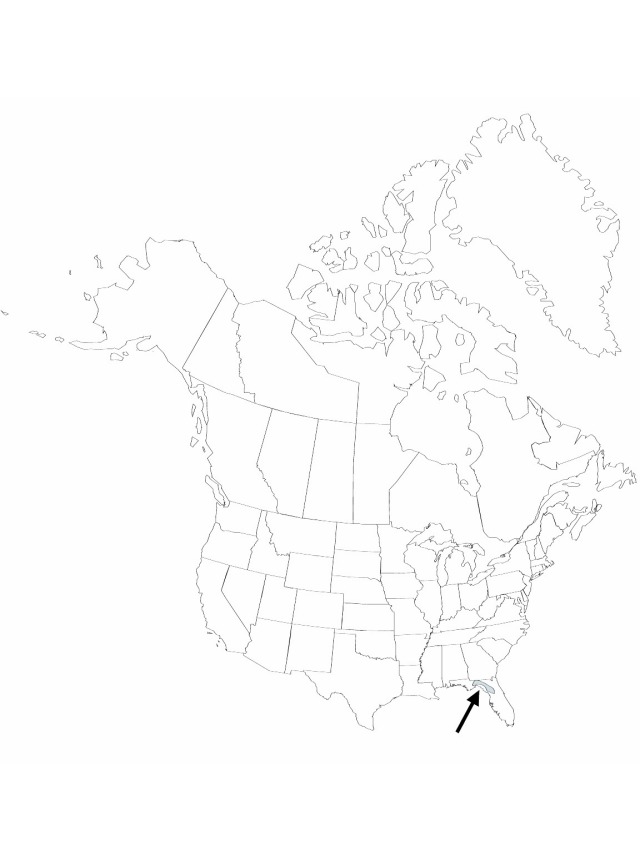Sagittaria kurziana
Bulletin of the Torrey Botanical Club 54: 257. 1927.
Herbs, perennial, to 250 cm; rhizomes absent; stolons present; corms present. Leaves submersed and floating, sessile, phyllodial, flattened, 50–250 × 0.4–1.5 cm; rare stranded plants without expanded leaf-blades. Inflorescences racemes, rarely panicles, of 4–10 whorls, floating to slightly emersed, 15–25 × 5–15 cm; peduncles to 200 cm; bracts connate less than or equal to total length, lanceolate, 0.4–0.8 mm, delicate, not papillose; fruiting pedicels spreading to recurved, cylindric, 1.5–4.5 cm. Flowers to 2.8 cm diam.; sepals erect to spreading in staminate, erect in pistillate, enclosing flower or fruiting head; filaments dilated, equaling anthers, glabrous; pistillate pedicellate, without ring of sterile stamens. Fruiting heads 0.7–1 cm diam.; achenes obovoid, abaxially keeled, 5 × 2.5 mm, beaked; faces not tuberculate, wings absent, glands 0–1; beak lateral, erect, 1 mm. 2n = 22.
Phenology: Flowering summer–fall.
Habitat: Large springs and their streams, in fresh to slightly brackish water
Elevation: 0–100 m
Discussion
Sagittaria kurziana is a distinctive species found in springs and clear streams, often with high sulfur content. The plants form huge colonies, essentially filling the stream with their long flexible leaves that wave back and forth in the water current.
Selected References
None.
